#but hey she and her plot is more interesting than the entire first cour so
Photo
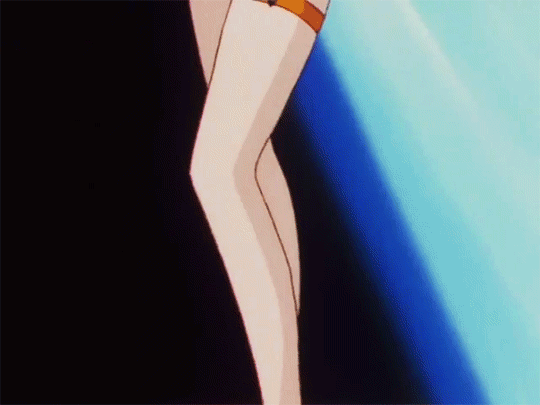
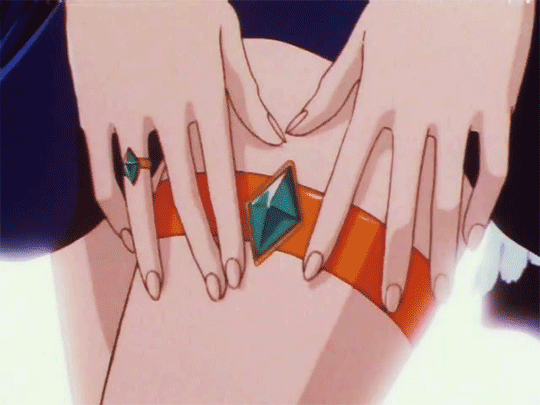
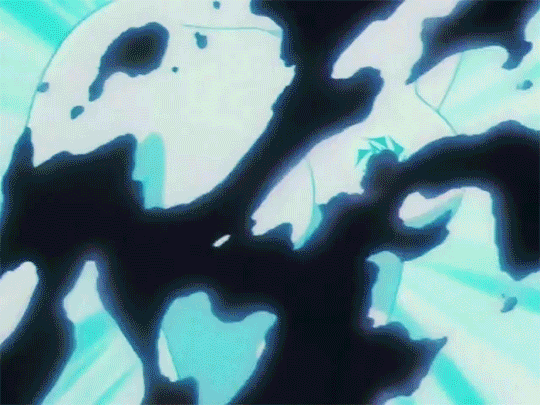
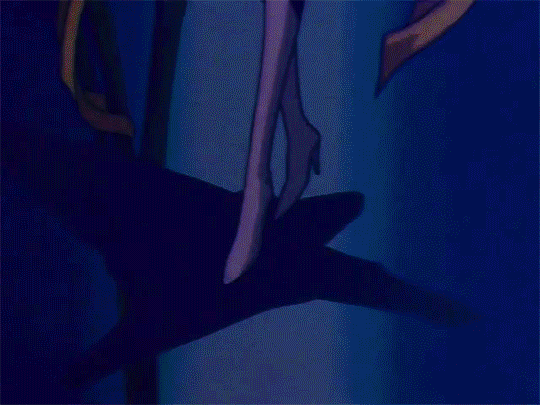
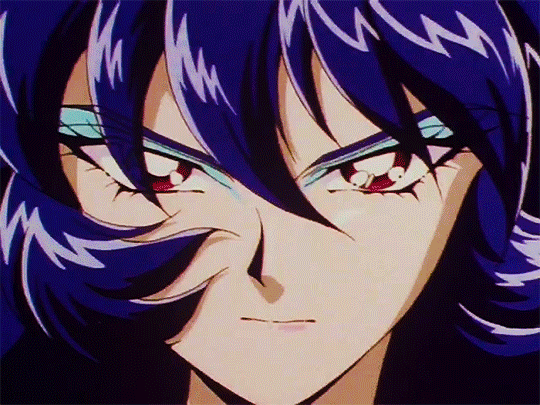
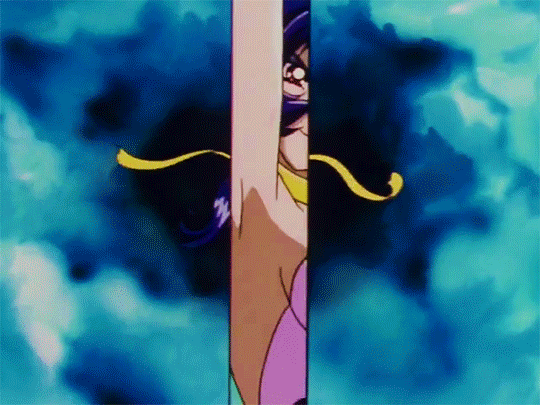
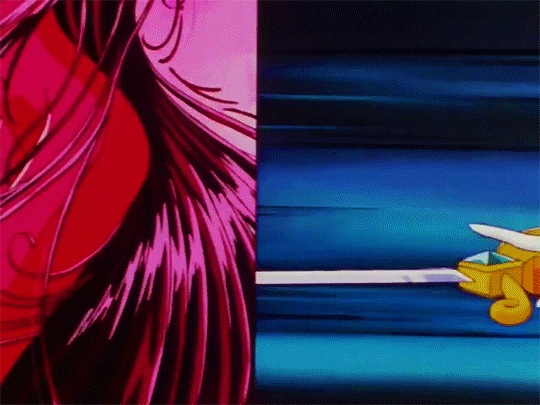

Misty Honey in Cutie Honey Flash
#Misty Honey#Hazuki Seira#Cutie Honey F#Cutie Honey Flash#Cutey Honey F#Cutey Honey Flash#mine#this anime is still really bad#but hey she and her plot is more interesting than the entire first cour so
160 notes
·
View notes
Link
The translators actually have Tumblr! @edogawatranslations which where they translate 999 Alterna stuff.
I don’t know what their policies are regarding me sharing this interview, but I just wanted to give a signal boost their translations, so prepare for some posts about that!
“The protagonist, Emma, is played by Sumire Morohoshi, who has nearly 16 years of acting experience despite being 19 years old. Norman is played by Maaya Uchida, who has been cast as a male main character for the first time. Ray is played Mariya Ise, a veteran known for her role as Killua in Hunter x Hunter.
During the interview, the trio gushed about how badly they had wanted to be cast in the show, as well as how their determination made the audition process all the more nerve-wracking.
But after overcoming those obstacles, they landed their dream roles—and an incredible team of actresses was born. ”
This interview contains spoilers for episodes one and two of “Yakusoku no Neverland”
Buy them coffee (it literally goes towards keeping their site ad-free):
https://ko-fi.com/K3K7H0HX
Follow Edo:
Reddit
Tumblr
Twitter
YouTube
The following is their interview. All translation credit goes to Edomonogatari, of course. If you want to see the pictures, go visit their site!
The Promised Neverland: Sumire Morohoshi x Maaya Uchida x Mariya Ise Interview
FROM LIVEDOOR NEWS (JANUARY 22, 2019)
INTERVIEW BY REIKO CHIBA // PHOTOS BY TAKUMA SUDA // PRODUCED BY ENFANT
The Voices in the Recording Studio Fit the Animation Perfectly
What did you think about episode 1 after watching it?
Morohoshi: I was blown away by the movie-level animation quality. In the beginning—when Emma, Norman, and Ray are playing tag with the other kids—the background art was so beautiful, and the atmosphere created by the glistening leaves felt so real. It seemed like a nice, idyllic environment for children to grow up and pass the time in.
That said, there was a huge dichotomy between the peaceful first half and the devastating second half, which suddenly threw us into the deep end. I bet that first episode hooked a lot of viewers.
Ise: In the second half, Conny (played by Ari Ozawa)—a little girl who grew up with Emma and the others—is found dead with a horrified look on her face. It was a drastic shift in tone from the first half, which showed the children leading fun, happy lives as a loving family.
Their “Mom”—Isabella (played by Yūko Kaida)—was awfully kind, and gave off the impression that she raised each and every child with care. But by the second half, you’re wondering where that kind Mom went. This stark contrast between light and dark that defines The Promised Neverland is established in just 30 minutes.
How about you, Uchida-san?
Uchida: The voices I heard in the recording studio fit the animation perfectly. I thought I’d be the only one worried about recording… But everyone else in the room seemed pretty nervous, too. I’m relieved episode 1 turned out well.
It’s my first time playing a young male lead, so I was just as anxious to record as I was to audition. I kept asking the staff, “Is my acting okay?” Even if they replied, “It’s fine,” it didn’t make me any less nervous.
However, as soon as I watched episode 1, the fact that “The Promised Neverland is here” hit me, since the characters and their voices all looked and sounded exactly how I imagined they would. At that moment, I knew everyone would enjoy this series.
Your Desired Role was the Opposite One? Secrets of the Nerve-Wracking Auditions
I heard that you all read the manga to prepare for your auditions. What did you think of it?
Morohoshi: I had assumed that all Jump protagonists were boys, so I was surprised that the protagonist was a girl. The story, which centers around escaping from Grace Field House, and the world, which is inhabited by demons, also stood out to me.
But as I continued reading, I felt the thrill of waiting for the next plot twist, watched as friends teamed up against foes they couldn’t beat on their own, and realized this was a Jump series after all. I was so entranced by this combination of fresh ideas and classic tropes that I caught up in one sitting.
Ise: Yeah, once I started reading it on my phone, I couldn’t stop. I was like, “I need a physical copy!” So I went to the bookstore the next day and bought every volume.
Uchida: I was also reading it on my phone at first, and before I knew it [pretends to grip a phone with both hands], I was stuck in this position. This was late at night, but by the time I looked up, it was already bright outside. It was every bit as suspenseful and interesting as Sumire-chan described. The more I read, the more I wanted to play one of the characters.
Ise: These kids are thrust from a peaceful world into a pit of despair. But rather than give up hope, they defy the status quo and search for a way out. It’s quite a wake-up call for those of us living peacefully in today’s Japan.
Various children besides the main trio appear in this series, but even when faced with the same situation, they make different decisions. I didn’t exactly put myself in their shoes, but as I read the manga, I’d ask myself hypothetical questions like “Would I feel how Emma feels?” or “Would I think how Norman thinks?”
Did you all audition for multiple roles?
Morohoshi: No, just Emma.
Ise: I auditioned for Emma and Norman.
Uchida: I was asked to read for Emma, Norman, and Ray.
Morohoshi: Looking back, my studio audition included an important scene—the one in episode 1 when Emma lets out a tear-filled scream (after seeing Conny’s corpse, the demons, and Isabella at the gate). That was the first time our bright, optimistic, and headstrong Emma had ever felt true despair, so I thought long and hard about how to portray it.
Since I didn’t get any detailed feedback during my audition, I couldn’t stop wondering, “Did I do that right?” once it was over.
Uchida: I was anxious after mine as well. By the time I arrived at the studio for my audition, it was already packed with voice actors famous for playing young boys. Honestly, I was beginning to doubt myself…
It would’ve been my first time playing a boy for an entire cour, and in a dialogue-heavy series to boot. But I was still determined to get the role no matter what. Back then, Ray was my top choice.
Ise: Maaya-chan wanted to be Ray, and I wanted to be Norman.
Uchida: The role I got wasn’t the one I wanted… Funny how things work out, huh. Come to think of it, I auditioned for Norman right after auditioning for Ray. I guess after playing someone as aggressive as Ray, I was able to relax a bit when I played Norman.
Big thanks to my manager for letting me take on such a challenging audition even though I barely had any experience with male roles.
Ise: I had submitted tape auditions for both Emma and Norman, but I was only called in to do a studio audition for Norman. At that point, I was dying to succeed, so I tried not to come off as desperate during my audition.
I’ve recently been volunteering at a pediatric cancer center, which means I’ve had more opportunities to hang out with children who are obsessed with reading The Promised Neverland. Because some of these children are unable to leave the hospital, I thought I could inspire them—and give them courage and hope—by appearing in this series.
I see. Then, how did you feel when you were cast as Ray?
Ise: I’m pretty comfortable with playing him now. Although I admire Norman, I’m more similar to Ray. Thankfully, a lot of people have told me that I’m “perfect” as Ray, so I’m very happy to have been cast as him.
I used to play a character from another Jump series who resembles Ray—a boy with a dark past and a twisted personality—so I’ve taken it upon myself to differentiate the two.
How did those around you react to the news, Morohoshi-san?
Morohoshi: A bunch of different people contacted me when the cast was announced, which made me realize that this series was popular among all genders. It was right around the time I entered college, so I received messages like “That’s awesome!” This series has helped me make a lot of friends at school. [laughs]
Uchida-san, was there also a big reaction to you being cast as a boy?
Uchida: Yeah, even the people close to me were really surprised. Before I was allowed to share the news, I went to the bookstore with my mom. She’s always been an avid manga reader, but she picked up a volume of The Promised Neverland and said, “This one’s interesting.” I couldn’t tell her that I’d been cast yet, so I just responded, “What? Oh, um, have you been reading it…?” [laughs]
The cast wasn’t even announced when the first voiced promotional video came out. I don’t share every role I get with my mom, but I was dying to ask her, “Hey hey… Have you seen this video?” [laughs] I wanted to tell her, “Listen closely.”
No Lies in Her Words: Morohoshi’s Impressive Acting Prowess
Have you recorded any memorable scenes thus far?
Ise: This isn’t exactly a scene per se, but I was impressed by how Sumire-chan never lies when she speaks into the mic as Emma. As you know, we get our lines ahead of time, which means we subconsciously plan out how we’ll perform them in advance. But in Sumire-chan’s case, every word that comes out of her mouth sounds sincere, as if they represent her true feelings in that moment.
Emma is Grace Field House’s beacon of hope, the force that pushes everyone forward. She’s both the heroine and a hero, so naturally, that makes me want to follow Sumire-chan too!
Uchida: I agree. She’s such a reliable protagonist. Truly, I’d follow Sumire-chan anywhere!
Morohoshi: Well… I feel reassured having you two by my side.
Uchida & Ise: Awww!
Morohoshi-san, what do you keep in mind when you’re acting?
Morohoshi: Emma’s not the type to think too deeply before speaking, but her innocent words and unwavering spirit still influence the people around her. In my opinion, that positive aura is what empowers her to be a natural leader. Since her “Emma-ness” goes away if I overthink, I try to rely more on my intuition when I play her.
To be fair, my two co-stars are an even better fit for their characters.
What do you think of Ise-san’s character, Ray?
Morohoshi: For starters, I’m amazed by how she can maintain such a deep voice while playing him. The way his voice gets slightly higher, and sometimes cracks, when he’s agitated feels especially real.
As soon as I noticed the gap between his emotional immaturity and his mental maturity, I went, “That’s Ray alright.”
Ise: You’re too kind.
Uchida: I’ve liked the nihilistic Ray ever since I read the manga, and Mariya-chan’s version of Ray is just as cool. He has the power to lead others in a way that neither Emma nor Norman can.
I like it when he’s rude to Emma and Norman. For example, in episode 2, when he asks Norman, “Why? Aren’t you different?” and then grabs him by the collar so hard that he can’t escape. I thought Mariya-chan really nailed that part!
Ise: At first glance, Ray seems level-headed, but he’s actually quite transparent with his feelings. He gets angry, yells, and sulks. He’s surprisingly childish at times.
Ray’s on a “certain mission” involving Grace Field House, but he can’t accomplish it on his own… Considering his backstory, it’s no wonder he’s pessimistic and devoid of all hope for the outside world. Yet, Emma and Norman—who he met in the midst of his struggles—have become more and more important to him, so he’s determined to save at least the two of them. He’s an extremely considerate, courageous, and caring young man on the inside.
Uchida: He acts cute whenever Isabella’s around, though.
Ise: It’s weird to hear such a nihilistic guy refer to Isabella as “Mom,” huh.
Morohoshi: It’s so cute he when does that. Ise-san does vocal warm-ups before playing him, so I’ve been learning her vocal exercises.
What kind of vocal exercises?
Ise: (low-pitched) Hnn hnn hnn hnn, (high-pitched) hnn hnn hnn hnn, (low-pitched again) hnn hnn hnn hnn. That kind.
Morohoshi: Her range is amazing, isn’t it?
Ise: That’s the trick I use to slip into Ray’s voice. I lower my voice prior to standing before the mic. I also do some stretches in the studio before we start. Everybody else goes directly up to the mic—like the professionals they are—but I need to warm-up, tune my voice, and get into the groove one step at a time. I’m sure we each have our own method of getting ready.
Uchida: In my case, I guess I feed off the energy of others. Our mics are always stationed in the same spot, so whenever the three of us are standing side-by-side, I know everything’s going to be alright.
Norman’s Heart-Throbbing Line: “Let’s run away. Together, with everyone.”
What do you think of Uchida-san’s character, Norman?
Morohoshi: Just hearing Norman’s voice makes me feel safe.
Ise: Same!
Morohoshi: Although Emma is emotionally shaken until roughly episode 3, Norman stays composed and is there for her. It’s comforting to hear Maaya-san speak in a calm and collected tone. I tend to tremble as I say my lines, but she calms me right down. Like a tranquilizer.
Uchida: Yay, I’m glad to hear that.
Ise: Maaya-chan and I co-starred in Hunter x Hunter as Alluka and Killua, so I’m happy we got the chance to work together again. I was curious to see how she’d do as a boy… Turns out she’s perfect!
Uchida: Thank you very much!
Ise: The delicate way she approaches acting reminds me of Norman. Maaya-chan’s soothing voice—the clear, unmuddled voice of a prepubescent boy from the Vienna Boy’s Choir—is simply perfect for him.
I originally wanted to play Norman, but once I heard Maaya-chan’s Norman voice, I decided to aim for Ray instead.
Uchida: Norman’s a genius who always wears a smile and never raises his voice. He can instantly assess any situation and make snap decisions. I try not to make him sound too friendly when he’s giving explanations to the other children or the audience.
He’s so quick-witted that others have trouble following his train of thought. That’s why his demeanor is the same whether he’s having fun or being serious.
In addition, I was conscious of his masculinity. Norman and Ray—the oldest kids—are basically the only manly characters at Grace Field House. I thought it’d be nice to show off his flirty side, like when he admits his feelings for Emma.
Ise: Norman’s not embarrassed to say phrases that make girls blush.
Uchida: Exactly. You could already tell that he liked Emma in episode 1.
Ise: All three of them are 11 years old. Boys at that age tend to be shy, and either avoid their crushes or tease them on purpose, but Norman was thoughtful enough to sit next to Emma and ask her if she was okay. What a gentleman.
My favourite scene in episode 1 is when Emma runs into Norman at the wall during their game of tag, and he goes, [imitates Maaya’s voice] “You caught me.” I was like, “The way she said that was so smooth! Maaya-chan’s the best!” [laughs]
Uchida: Why, thank you! [laughs] Something important I try to keep in mind is Norman’s open-mindedness, his acceptance of everyone and everything. In fact, I get a little embarrassed when we’re recording an intense scene in the studio and I start to see Emma as Sumire-chan. [laughs]
Morohoshi: Fufu. [laughs]
Uchida: I might’ve said something presumptuous just now… What do you think? [laughs]
Morohoshi: I’m desperately trying not to fall in love. [laughs] The last thing this series needs is romance! After all, Emma doesn’t express any romantic feelings. Although, that scene at the end of episode 1—when Emma and Norman are talking in the bedroom—was a close call!
Ise: The scene in which Norman says, “It’s okay. Let’s run away, with everyone,” right? I know!
Morohoshi: After we recorded that part, everyone was like, “What a hunk!” [laughs]
Ise: He’s a sly dog, isn’t he?
Morohoshi: He sure is.
Their Ages, Personalities, and Interests are All Over the Place… So What “Promise” Did They Make?!
I heard that this is the first time all three of you have been interviewed at once. (Note: This interview was conducted toward the end of November 2018.)
Uchida: That’s right. I’ve never worked this closely with Sumire-chan before. We did play sisters on a show called GJ-bu, though.
Ise: It’s also my first time being a regular on a show with Sumire-chan.
Morohoshi-san, what do you view the other two as?
Morohoshi: [stares at Uchida and Ise] My gorgeous older sisters…
Uchida & Ise: [laughs out of embarrassment]
Morohoshi: Every time I watch Ise-san play Ray up close, and hear such a cool voice coming from such a beautiful face, I fall in love. [laughs]
Uchida: I totally get what you mean! [laughs]
Morohoshi: As for Maaya-san, like I mentioned earlier, her presence helps me relax so that I can record in peace.
Uchida: In terms of acting, Sumire-chan is often the one leading the pack. However, in contrast to Emma, she’s more like [imitates Morohoshi’s voice] “Okaaay, sounds good.” She’s rather carefree, in a cute and comfy way.
Ise: Sumire-chan exemplifies gap moe. She’s diligent at work, and relaxed in her daily life. I can tell that she’s generally down-to-earth and easygoing. If she only could act more dignified. Then, she’d be a real hotshot.
Despite being much younger, she has way more acting experience than I do. She’s learned so much from being involved in so many different productions.
Uchida: As for Mariya-chan, I admire how stunning she looks when she’s in front of the mic. There’s a lot I can learn from her, because her strong points are different from mine. I’ve been observing how she handles her roles. I’ll be sure to keep a close eye on both Sumire-chan and Mariya-chan until the final episode.
Morohoshi-san. As a teenager, do you want to take this opportunity to ask your big sisters anything?
Morohoshi: Hm, what should I ask…?
Uchida: Whatever you want. [laughs]
Morohoshi: I’ve always been one of the youngest in the studio, so I’ve never had the courage to invite people out to a meal or ask for their contact info… How would you feel if someone younger approached you about those things?
Ise: Wouldn’t you be delighted if a younger colleague did that?
Uchida: Yeah! Super delighted!
Morohoshi: I was hoping we could go eat together, but I don’t know if I should ask.
Uchida: No problem! Let’s go!
Ise: Now’s your chance!
Morohoshi: Awesome! Thank you guys so much.
Uchida: I’m kind of curious what our soft and cuddly Sumire-chan is like when she’s drunk.
Ise: When can you start drinking alcohol?
Morohoshi: I turn 20 next April. (TN: The drinking age in Japan is 20.)
Uchida: Alright, how about we go drinking once you’re 20?
Ise: Let’s do it, let’s do it!
Morohoshi: Hooraaay.
What sort of topics get you three excited?
Ise: I want to show Maaya-chan some beauty products.
Uchida: Sure, I’m a cosmetics maniac anyways.
Is that so?
Uchida: Yup, I bring my own cosmetics to events. I love doing my own makeup.
Morohoshi-san, what sort of stuff do you like?
Morohoshi: Well, I like eating. I’m a meat lover, so I’ll eat that whenever it’s available. I’m always searching for good barbecue spots. I don’t have any actual hobbies, though… What are you two interested in?
Ise: I like makeovers and massages.
Uchida: I like baseball, and going to the stadium in uniform to cheer for my team.
Ise: Wait, seriously?!
Uchida: I’m a fan of the Fukuoka SoftBank Hawks, so I usually spend my days off over in Fukuoka.
Morohoshi: Woah, please tell me more!
Sumire Morohoshi
Born on April 23, 1999.
Blood type: A.
Notable roles include: Ichigo Hoshimiya (Aikatsu!), Hitoka Yachi (Haikyu!!), Hinami Fueguchi (Tokyo Ghoul), Kyōka Izumi (Bungo Stray Dogs), Vanellope von Schweetz (Wreck-It Ralph), and Mei Ayazuki (Meiji Tokyo Renka).
Maaya Uchida
Born on December 12, 1989 in Tokyo.
Blood type: A.
Notable roles include: Rikka Takanashi (Love, Chunibyo & Other Delusions), Ranko Kanzaki (The Idolm@ster: Cinderella Girls), Sharo Kirima (Is the Order a Rabbit?), Nodoka Toyohama (Rascal Does Not Dream of Bunny Girl Senpai), Kanna Hatano (YU-NO: A girl who chants love at the bound of this world), Ayame (Kabaneri of the Iron Fortress), and Rui Tachibana (Domestic Girlfriend).
Mariya Ise
Born on September 25, 1988 in Kanagawa Prefecture.
Blood type: A.
Notable roles include: Urara Kasugano / Cure Lemonade (Yes! Precure 5), Levy McGarden and Romeo Conbolt (Fairy Tail), Huang Pao-Lin / Dragon Kid (Tiger & Bunny), Killua Zoldyck (Hunter x Hunter), Midari Ikishima (Kakegurui), Reg (Made in Abyss), and Cathy (Angels of Death).
#edomonogatari#yakusoku no neverland#the promised neverland#seiyuu#maaya uchida#mariya ise#sumire morohoshi#tpn#ynn
9 notes
·
View notes
Text
Magical Girl Raising Project: Restart thoughts
I’ve liked all MagiPro arcs, but after my initial read Restart was my least favourite. But now after rereading it I’ve grown to like it more.
The main reason I wasn’t as into this as I was with the first arc is that I just don’t care for the video game setting. It feels like every other cour there is an anime season about being stuck in a video game or at least a fantasy world with video game mechanics, and I haven’t watched any of them, and the subject doesn’t interest me in book form either. I’m not much of a gamer myself so stories that expect me to go “hey, I recognise this plot element from my games!” don’t really do much for me.
Aside from the video game references feeling like an inside joke thing at times, the video game element easily comes across as lazy writing to me. Like you can write whatever random scenario and excuse it with “a video game did it”. There’s no need to make the environment or items make sense since anything can happen in a video game, and you can create disposable enemies that just happen to have an ability relevant to a main character’s power and you don’t need to worry about the ramifications of destroying them. And there were some times I found the writing a little trope-y.
The video game world also made the evil mastermind come across as unnecessarily powerful, like I can buy that she can control everything inside the game, but I don’t like it how she can apparently control stuff outside it as well with the forced logins. I would prefer it if the players were tricked into the game world but still went there under their own volition, and the whole story took place inside the game. Now the way the players are regularly logged out and spend three days in the real world (real world time doesn’t even move when they’re in the game) really random and there just so that the author can write about their civilian life, and there’s no need to explain anything other than “a video game did it”.
However that’s just about the video game aspect and you kind of just have to accept it if you want any enjoyment out of this story since that’s the premise. So ignoring my issues with this I really like Restart. The stuff I love about MagiPro is very much present, with all the unique powers and designs and personalities and backstories. The sequel also continues the story from the first arc; from what I can remember of the following two arcs they didn’t have a lot to do with Cranberry’s tests, but this one is a direct result from them and in the end everything traces back to them. And since we know that the test in the first book was Cranberry’s last I know at least I would be wondering what the previous ones were like so I’m glad that this arc gives some answer to that.
I also appreciate that Restart does something differently from the first arc too. Sure both stories are about magical girls who are forced to take part in a game where they have to kill each other so the basis is similar, but there’s differences in the execution that the story feels fresh enough. Especially the fact that the characters are in groups is a cool angle; in the first arc the only bigger group was Ruler’s faction and the rest of the magical girls worked in pairs at best (and alone once the characters started dying off), but here almost everyone is in a specific faction with its unique character dynamics, and the affiliations change as the story progresses or when the characters need to team up against bigger opponents. It really feels different reading from Nokko-chan’s POV about her openly friendly team and Pechka’s POV about her somewhat dysfunctional but still reliable and loyal team, while team Bell is entirely distinct with the way only the bouncy Lazuline seems to be really invested in bonds outside convenience. This is such a nice chance to the usual magical girl fare where everyone is hyper friendly with everyone and all the relationships look the same.
My favourite characters are probably Detec Bell (I really like detective stories so combining them with magical girls is like a dream come true) and Clantail, while design-wise my faves are Detec Bell again, Lapis Lazuline, Magical Daisy and Nokko-chan. On my first read I really didn’t like Lapis Lazuline (annoying) or Pfle (smug), but on this reread my opinion on both improved a lot, so aside from the game master there weren’t any characters I really didn’t care for.
#magical girl raising project#magical girl raising project: restart#ramble ramble#my stuff#review I guess
8 notes
·
View notes
Text
So I recently finished watching Durarara!!x2.
Yes, I really didn’t get to it until just now.
The original Durarara!! was a fresh, unique anime that improved considerably on the source material by adjusting the pacing, adding entirely new scenes, changing the order in which scenes were presented, and doing a whole slew of other things to produce an exciting story about gang violence and twisted love in a city that’s only a hop, skip, and a jump away from my university. Now, these improvements were CRUCIAL. Durarara has a TON of characters, and it was important to give the viewer time to get to know them, as well as give them time to establish a meaning for themselves and be relevant.
Durarara!!x2 tries to achieve the same result without using the same methods.
But before I talk about that, I want to talk about something I haven’t seen anyone else talk about regarding this series. Ever wonder why the three seasons of DRRR2 are called “Shou,” “Ten,” and “Ketsu?” Well, the standard essay-writing structure taught in Japanese schools is called “ki-shou-ten-ketsu,” just like how American schools teach “intro, body, body, body, conclusion.” The “ki” (presumably represented by the first season of DRRR) is the intro as we know it. The “shou” is a development of the thesis, building upon and substantiating it at the same time. The “ten” is the twist, coming at the topic from a completely different angle and putting your own personal spin on it - for example, proof by contrapositive could happen here. Finally, the “ketsu” is the wrap-up, tying the rest of the essay up into a neat little bow and making the threads of logic all come together. So as part of my discussion of this anime, I think it might be interesting to look at it from this perspective.
Technical details first. The animation isn’t bad, and the few serious fight scenes look good enough. The character models, though, could use some work. They often suffer from Tim Burton Syndrome, especially Egor and Rokujou. As for the music, the only track that really stood out was Ketsu’s OP, which kicks three and a half different kinds of ass (compared to the five kinds of ass kicked by the first season’s OPs and Trust Me). And the voice acting, naturally, was great. What can you expect from a cast that contains both Daisuke Ono and Jun Fukuyama?
If you thought the original DRRR had a lot of characters, you ain’t seen nothing yet. DRRR2 introduces tons of new characters, brings back ones that were retired in the first season (Haruna and Takashi), and even shows us some that were only alluded to before (Izumii). Easily more than the first season’s entire cast. Who, by the way, still stick around. 36 episodes is just not enough to develop all of them adequately and make them all satisfying. And on top of that, some of them are given focus they don’t need. Akabayashi is given an entire flashback episode in Ten, but he’s completely inconsequential throughout the entirety of Ketsu - despite the fact that he’s in its OP. Heck, Ruri Hijiribe remains an important figure throughout Shou, but doesn’t matter at all from then on. She doesn’t even get any screentime in Ketsu except for one short scene. Rather than see the characters for who they are, you start to see them only for what faction they’re in. Where’s this guy from, who’s he working for? What he wants or what he’s like tend not to be explained.
As for the story, Izaya’s plot to throw Ikebukuro into chaos continues. Shou actually opens with a four-episode adaptation of the fourth novel in the series, which actually serves as a very nice reintroduction. It’s been years and years since the first season, and the viewer needs time to readjust to Durarara’s peculiar storytelling. It depicts a (relatively) inconsequential sequence of events told completely out of order. Our old friends get some decent action in, and a few new characters are given some time to shine. It was very welcome.
Anyway, throughout Shou and Ten, various factions gain considerable power. We meet the Toramaru gang, Mikado goes completely off his rocker, the Blue Squares come back, and even the yakuza enter the fray. These two cours create a very distinct feeling that Ikebukuro is reaching its boiling point. Shou provides a steady influx of new info and new gangs to add to the first season’s introductions, and Ten shows us how human traffickers and yakuza throw their wrenches into the youth-dominated underbelly of the city. How, then, does Ketsu tie everything together?
Poorly.
With so many complicated factions and motivations already, it tries to introduce even more characters at the latest hour, seeming to forget that it already has dozens of pre-established characters to keep track of. Remember Sloan? Yeah, me neither. He got one scene in the first episode of Ketsu. So much for his character arc. Mikage? Why should I care about her now when she’s never mattered before? Why should I get attached to Kujiragi if I’ve never seen her before? Ketsu seems to waste too much time on more setup and forget that it has a Byzantine story to bring a satisfying conclusion to. In fact, the big climax to the series starts with a minor character deciding to begin preparing for his endgame. That’s how bad it is. It’ll ignore groups of characters for entire episodes at a time. Something important happens for Celty halfway through Ketsu, but she remains ignored until the very last episode, where she acts as a shameless deus ex machina because Narita couldn’t figure out how to write himself out of the clusterfuck he had created. Remember her scene at the Dollars meeting in the first season? That was awesome. But her big scene here in Ketsu is completely disappointing. To add insult to injury, the series concludes with a perfect return to the status quo, resetting the game board completely. Everyone’s progress toward their goals (except maybe the high schoolers) goes back to zero. Really makes you wonder what you sat through 61 episodes for.
Finally, there’s the theme of twisted love. This comes across loud and clear in the first season and the LNs, but it’s hard to find in DRRR2. Shinra and Celty get a little development on this front, and Seiji and Mika reiterate some of the same points they made in the first season, but other than that, examples of this theme are few and far between. I guess there’s Kasuka and Ruri in Shou, but they only matter for a few episodes, and the assertions made by their relationship end up not mattering in the bigger scheme of the series. In this aspect, the series lost quite a bit of scheme. I foresaw Shinra’s climactic scene from halfway through Ketsu. Come on, guys.
Okay, so I’ve been ripping on this quite a bit. I love ripping on things. But I also found a great deal of enjoyment in DRRR2. Justice porn is abundant, and there’s plenty of DRRR’s special brand of humor to be found. Even the fight scenes are exciting.
My final score for Durarara!!x2 is a five out of ten.
Shou supplemented the first season decently.
Ten gave a cute new perspective on Ikebukuro.
But Ketsu dropped the ball. It was too focused on being more Durarara, forgetting to be a good conclusion to a long and complicated series.
That said, there’s plenty to enjoy. Shizuo and Varona had a good dynamic going on. Rokujou was a joy to watch. Walker and Erika were hilarious as usual, despite their god-awful taste in LNs.
I believe this anime would have been better if it had been longer. It needed time to develop its army of characters satisfactorily. Some were scrutinized and then thrown away, others were kinda there the whole time without mattering until their big scene in which you were supposed to care about them, and still others were tossed in at the eleventh hour. In order to make this series better without making it smaller-scale, it needed more time. But hey, this is what you get when you try to adapt eight LNs in three cours.
44 notes
·
View notes